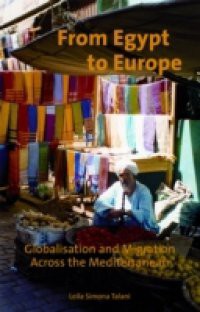9/11 marked a watershed in the modes of western interaction with Muslim countries, and modified the perception and reception of Muslim migrants within the western world. In this context, the question of how these events impacted on the process of migration from the Middle East to Europe becomes unavoidable._x000D_ _x000D_While one of the most controversial effects of 9/11 on migration is securitisation, the problem of migration from the Middle East and North Africa to the EU precedes the more recent security concerns and has become in the last decade one of the first priorities to be tackled by policy makers in both countries of origin and host countries._x000D__x000D_The dimensions acquired by the phenomenon of mass migration, the degree of involvement of organised crime groups in the smuggling of migrants, the appalling conditions in which immigrants often find themselves in the hosting countries, pose a number of questions which make it imperative to investigate on the underlying causes and consequences of the problem. There seems to be a certain degree of consensus in the literature on the fact that the process of globalisation has indeed modified the terms within which migratory processes take place. However, scholars are still divided on the assessment of the 'hows' and 'whys' of the impact of globalisation on migration._x000D__x000D_The main objective of this book is to explore the impact of globalisation on migratory flows from an international political economy perspective, paying particular attention to the dynamics of migration from the MENA area, especially Egypt, to the EU. The theoretical aims of the book are to understand the problem of migration, both legal and illegal, in the context of globalisation, and to assess the relation between globalisation, marginalisation and the EU response to threats of mass migration from less developed countries._x000D_

